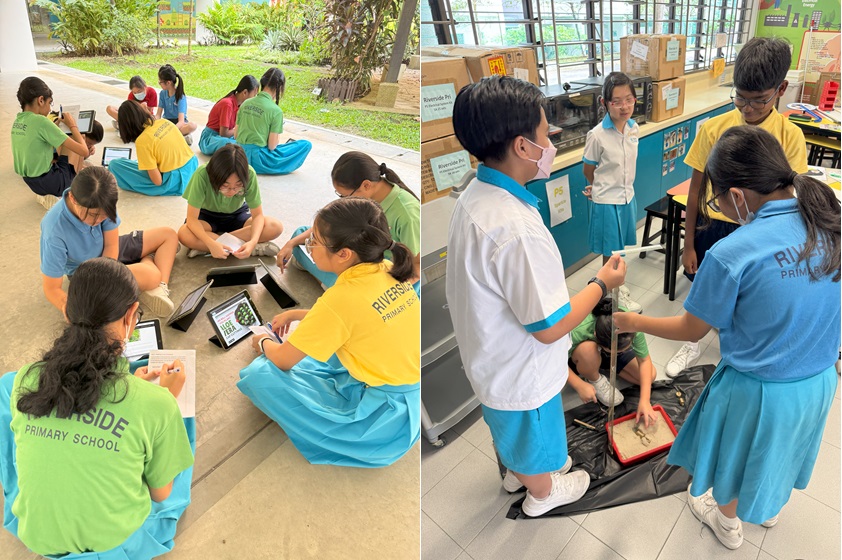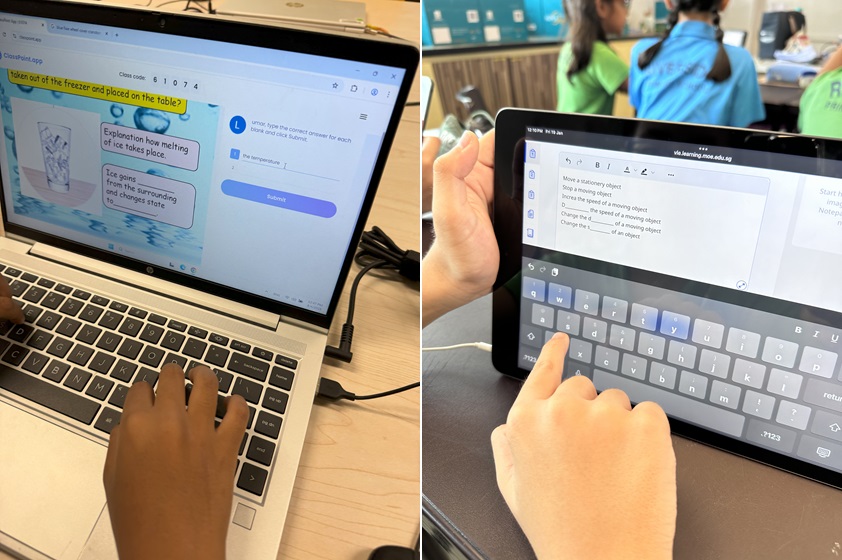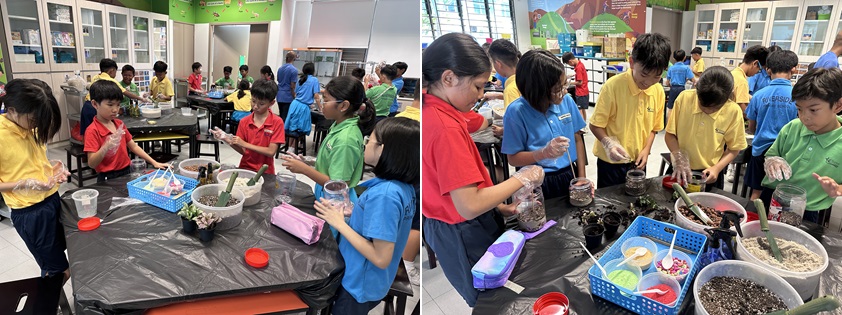Science
Science Department
Mission
To inspire learning for Science through a culture of inquiry, exploration and innovation to nurture curious ethical individuals.
Science Curriculum Framework
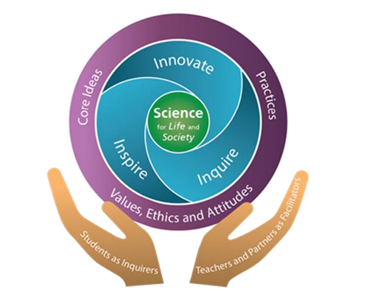
Surrounding the core of the framework are the three “IN”s, inspire, inquire and innovate, which represent the vision of science education. It encapsulates the desired overall experience of our students in science education:
- INspired by Science. Students enjoy learning Science and are fascinated by how everyday phenomena have scientific connections and how Science helps solve many of our global challenges. They regard Science as relevant and meaningful and appreciate how Science and Technology have transformed the world and improved our lives. A good number of students see Science-related careers as a viable profession to serve the good of society.
- INquire like scientists. Students have a strong foundation in Science and possess the spirit of scientific inquiry. They are able to engage confidently in the Practices of Science, grounded in the knowledge, issues and questions that relate to the roles played by Science in daily life, society and the environment. They can discern, weigh alternatives and evaluate claims and ideas critically, based on logical scientific evidence and arguments, and yet are able to suspend judgement where there is lack of evidence.
- INnovate using Science. Students apply and experience the potential of Science to generate creative solutions to solve real-world problems, ranging from those affecting everyday lives to complex problems affecting humanity. A strong pipeline of students can contribute towards STEM research, innovation and enterprise.
The outer ring represents the domains that make up the strong science fundamentals: Core Ideas, Practices, and the Values, Ethics and Attitudes.
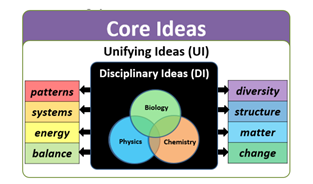
- Core Ideas (CI) of Science. To make Science learning coherent and meaningful, the Science curriculum is organised around Core Ideas (Figure 2), which are the distilled ideas central to Science. The Core Ideas help students see the coherence and conceptual links within and across the different sub-disciplines of Science
Practices of Science serve to highlight that Science is more than the acquisition of a body of knowledge; it is also a way of thinking and doing (Figure 3). The Practices of Science represents the set of established procedures and practices associated with scientific inquiry, what scientific knowledge is and how it is generated and established, as well as how Science is applied in society. In particular, it is important to appreciate that the three components representing the cognitive, epistemic and social aspects of the Practices are intricately related.
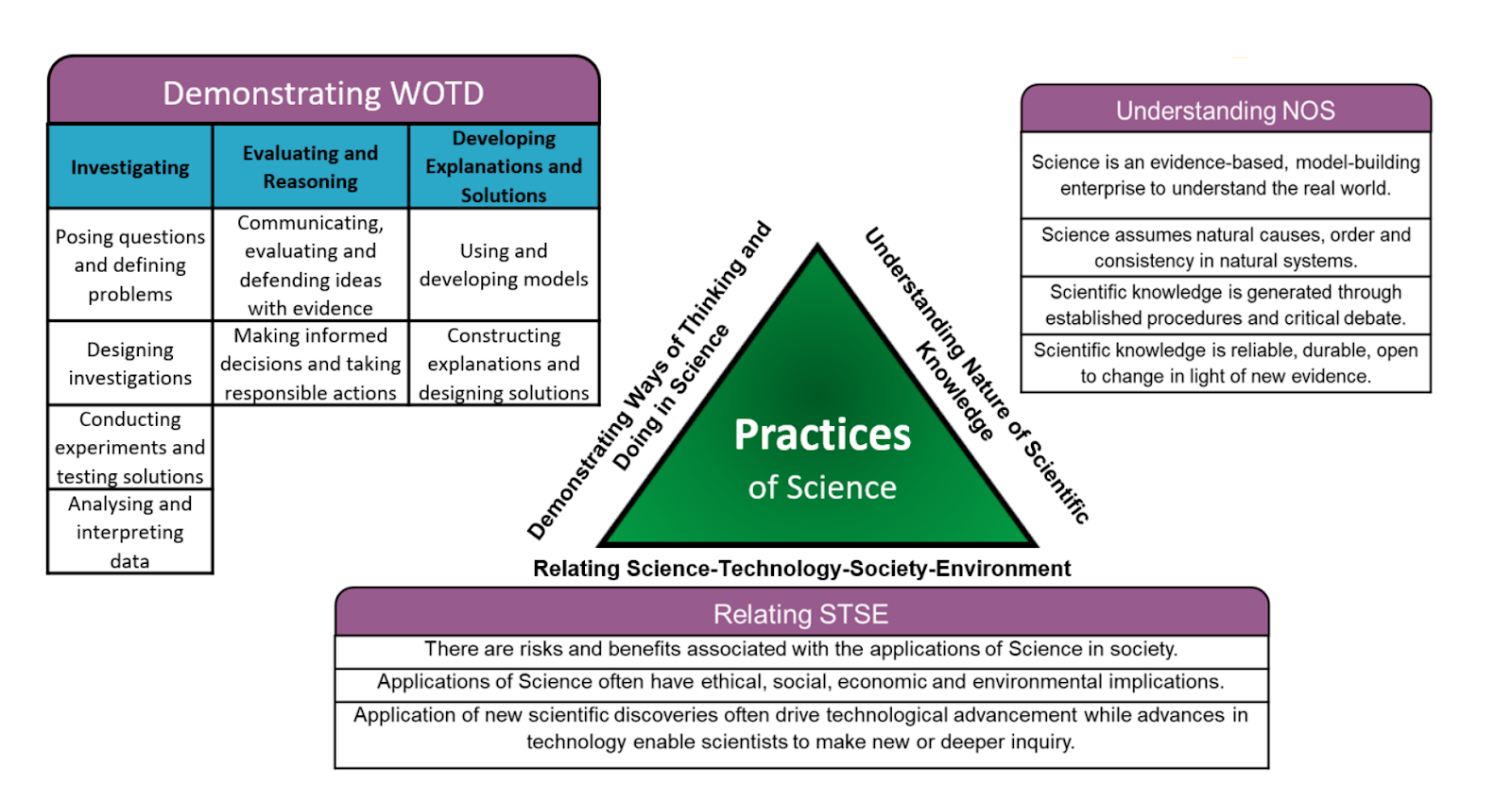
Key Programmes
-
The recess activities introduce young learners to the wonders of the natural world through exploration and discovery. It nurtures curiosity, observational skills, and a sense of inquiry, laying the foundation for scientific thinking in everyday life.
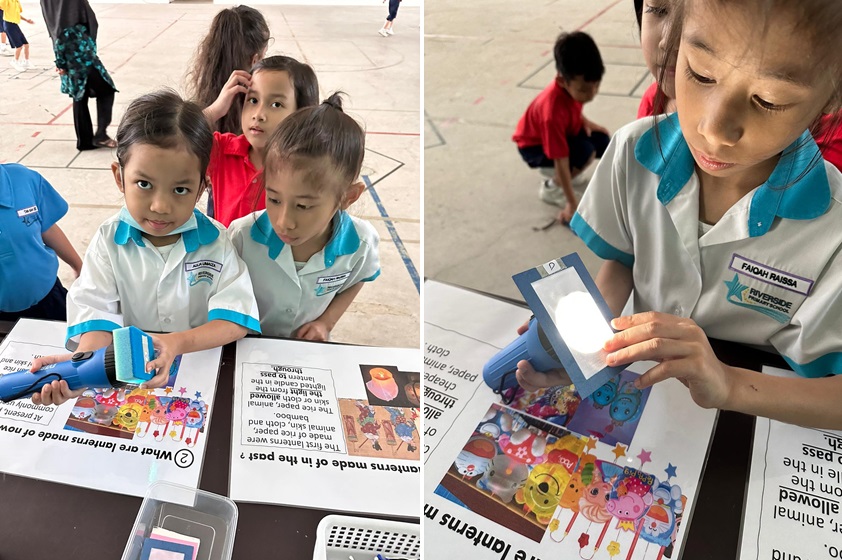
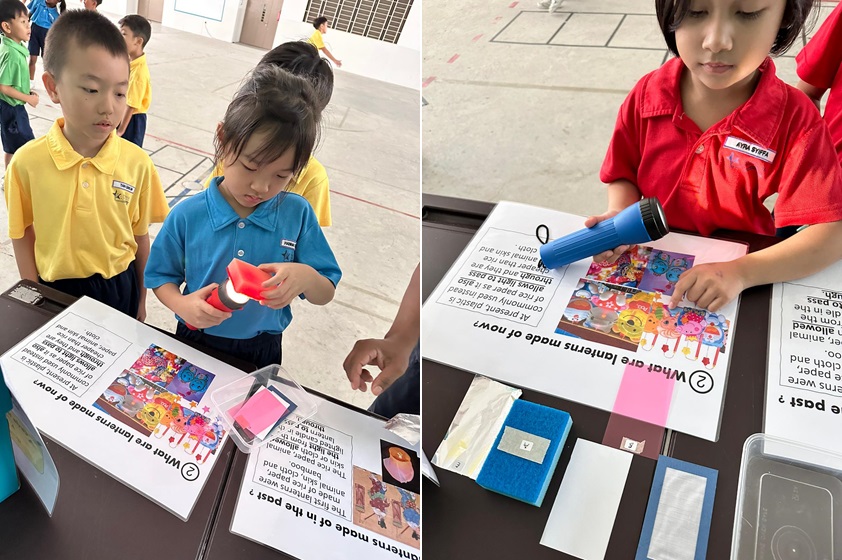
-
At Primary 3, students deepen their learning by connecting classroom concepts to real-world experiences. As part of our level-based learning journey, students visit the Science Centre to explore the fascinating world of magnets. This hands-on experience brings science to life, reinforcing key concepts through interactive exhibits and engaging activities that spark curiosity and a love for learning.
-
At Riverside Primary, we believe that science is best learned through experience. Our hands-on experimentation lessons allow students to step into the role of young scientists—observing, testing, and discovering scientific concepts for themselves. By engaging in practical activities beyond the textbook, students develop critical thinking skills and a deeper understanding of the world around them.
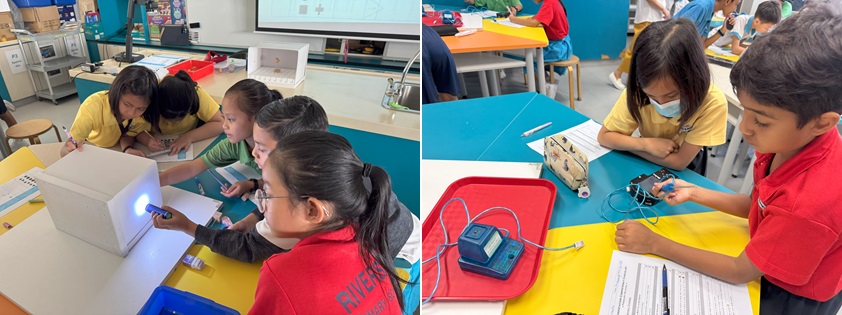
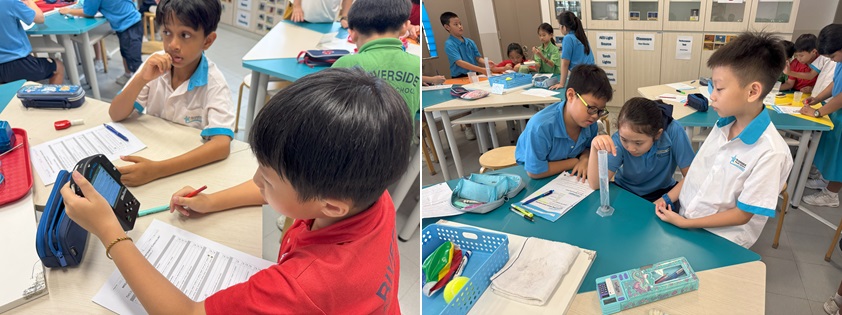


-
P3 Junior Botanist, Young Scientist Badge Scheme, RIPs, Magnets (VIA/Playworks), Ed-Tech Lessons P4 Junior Botanist, Young Scientist Badge Scheme, RIPs, Ice Cream Container (VIA/Playworks), Ed-Tech Lessons P5 Junior Botanist, Young Scientist Badge Scheme, P5 Terrarium Making, Ed-Tech Lessons P6 Junior Botanist, Young Scientist Badge Scheme, Ed-Tech Lessons 